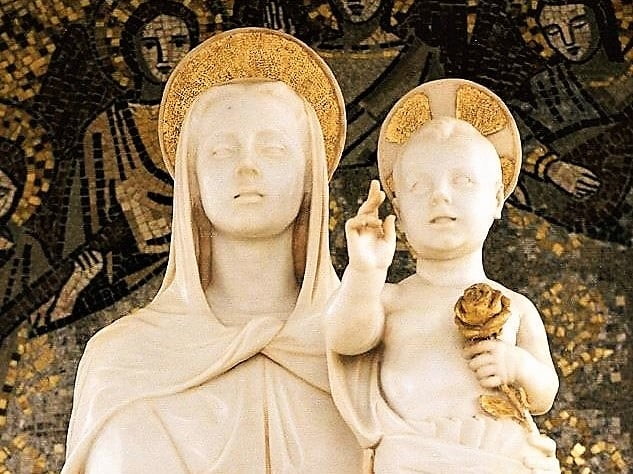ST. JOSEMARIA ON THE IRREPLACEABLE ROLE OF WOMEN IN THE FAMILY, IN SOCIETY AND IN THE CHURCH
The attention she gives to her family will always be a woman’s greatest dignity. In the care she takes of her husband and children or, to put it in more general terms, in her work of creating a warm and formative atmosphere around her, a woman fulfils the most indispensable part of her mission. And so it follows that she can achieve her personal perfection there.
What I have just said does not go against her participating in other aspects of social life including politics. In these spheres, too, women can offer a valuable personal contribution, without neglecting their special feminine qualities. They will do this to the extent to which they are humanly and professionally equipped. Both family and society clearly need this special contribution, which is in no way secondary to that of men.
Development, maturity, emancipation of women should not mean a pretence of equality, of uniformity with men, a servile imitation of a man’s way of doing things. That would not get us anywhere. Women would turn out losers, not because they are better than men or worse, but because they are different.
In terms of fundamentals, one can in fact speak of equal rights which should be legally recognised, both in civil and ecclesiastical law. Women, like men, possess the dignity of being persons and children of God. Nevertheless, on this basis of fundamental equality, each must achieve what is proper to him or her. In this sense a woman’s emancipation means that she should have a real possibility of developing her own potentialities to the fullest extent — those which she has personally and those which she has in common with other women. Equal rights and equal opportunities before the law do not suppress this diversity, which enriches all mankind. They presuppose and encourage it.
Women are called to bring to the family, to society and to the Church, characteristics which are their own and which they alone can give: their gentle warmth and untiring generosity, their love for detail, their quick-wittedness and intuition, their simple and deep piety, their constancy… A woman’s femininity is genuine only if she is aware of the beauty of this contribution for which there is no substitute and if she incorporates it into her own life.
To fulfil this mission, a woman has to develop her own personality and not let herself be carried away by a naive desire to imitate, which, as a rule, would tend to put her in an inferior position and leave her unique qualities unfulfilled. If she is a mature person, with a character and mind of her own, she will indeed accomplish the mission to which she feels called, whatever it may be. Her life and work will be really constructive, fruitful and full of meaning, whether she spends the day dedicated to her husband and children or whether, having given up the idea of marriage for a noble reason, she has given herself fully to other tasks.
Each woman in her own sphere of life, if she is faithful to her divine and human vocation can and, in fact, does achieve the fullness of her feminine personality. Let us remember that Mary, Mother of God and Mother of men, is not only a model but also a proof of the transcendental value of an apparently unimportant life.
Conversations with St. Josemaria, n. 87
READ MORE in https://www.escrivaworks.org/book/conversations/contents/7
Stay updated: subscribe by email for free TO OUR NEW WEBSITE www.catholicsstrivingforholiness.org (PUT YOUR EMAIL IN THE SUBSCRIBE WIDGET).
We are also in www.fb.com/Catholicsstrivingforholiness. Kindly help more people in their Christian life by liking our page and inviting your family, friends and relatives to do so as well. Thanks in advance and God bless you and your loved ones! Fr. Rolly Arjonillo
